As 2022 draws to a close we reflect on what has happened since our last newsletter.
With the changing season, bird numbers on the estuary have increased as around 20,000 migratory birds stop off to rest and feed over the winter. It is always a pleasure to witness this spectacle, but with the ever-increasing challenges of climate change and bird flu, this year we feel relieved to see many birds still returning and settling in, despite the chilly start to winter!
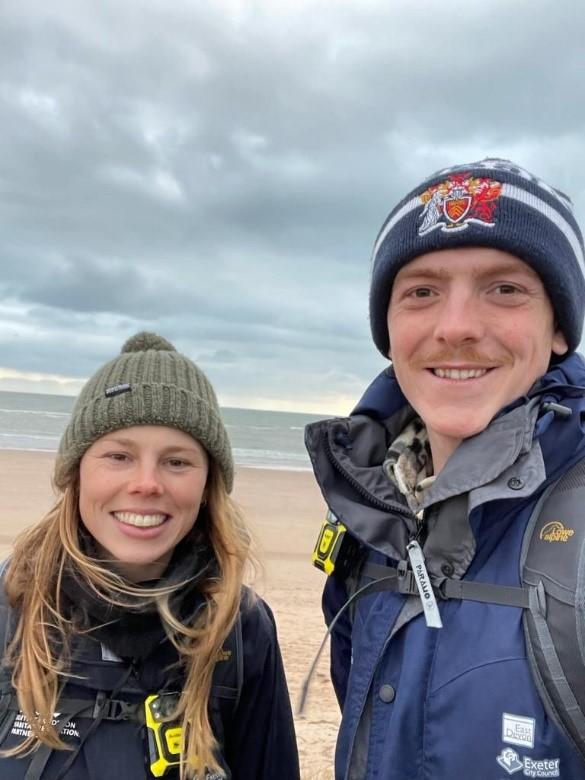
We have two new Wildlife Wardens that have recently joined the team. Imo started in August and with a background in nature-based activities, conservation volunteering, water sports instruction and an Environmental Science degree, we know she will bring her unique experience to the role. Ben started with us at the end of October after graduating from Cardiff University with a Biological Sciences degree. He starts his career with us and hopes to learn the ropes. They will be engaging with visitors to help them understand the importance of our local wildlife and it’s susceptibility to disturbance. Please do stop and say hello to both of them as they patrol at Dawlish Warren, on the Exe Estuary or at the East Devon Pebblebed Heaths. We wish them luck in their roles!
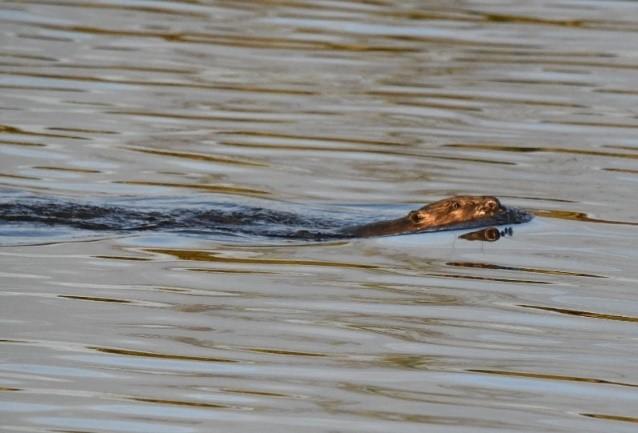
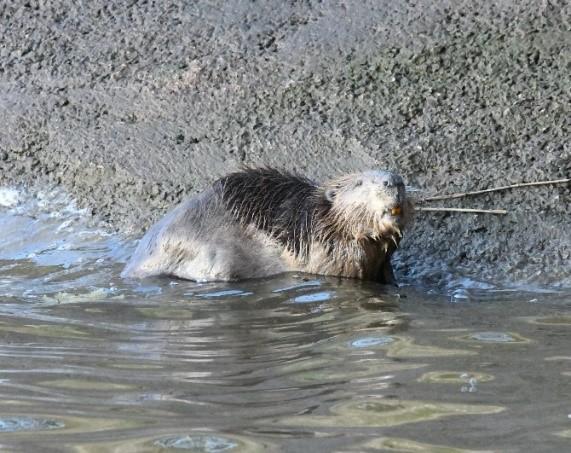
On 16th of November, a beaver was spotted on the River Exe near Turf lock! This unexpected sighting presumably means that beavers from the river Otter are thriving well enough to be able to explore beyond the rivers and region that they were assumed to have remained in.
Beavers have been reintroduced in Scotland and Wales with recent successful projects here in Devon (River Otter) and the North of England. They had been extinct in the UK for around 400 years due to hunting for their fur and meat, but now this native aquatic rodent is making a comeback.
The recent news brings back memories of the report from April of 2021 where a young beaver made its way into the river Exe but unfortunately got stuck in the mud and had to be removed as it was exhausted and stressed. There was also a high possibility that the beaver had suffered salt water poisoning so it remained in rehab until it was back to good health and released back into a quiet part of the River Otter.
This recent sighting helps to understand the behaviours of the Beaver and how they go about finding new places to live. However, as exciting as possibly seeing a beaver in the river is, it is really important to allow them space.
If you come across a stuck or lone beaver, you must leave them alone and inform your local council. Fingers crossed that any developments for this little visitor to the Exe are positive.
Photo credits: @steveengland19
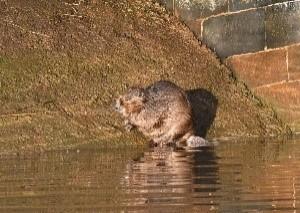
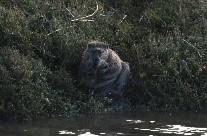
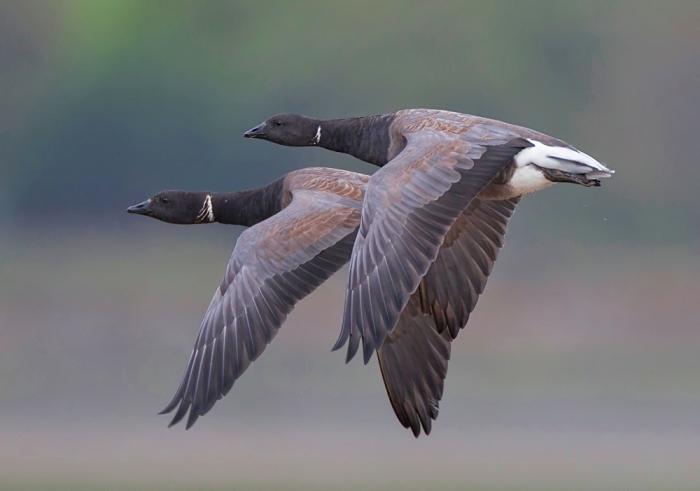
After their winter migration from Siberia, Brent geese from Siberia have arrived on the river Exe to feed on the eelgrass. To allow these birds the space and time to regather their fat stores and energy, we work with visitors to ensure that the Exe wildlife refuges are free from disturbance.
The Exmouth refuge runs from 15th of September to the 31st of December and all year round for the Dawlish Warren refuge. We have been patrolling these areas to help people learn about the refuge and the protected status of the wildlife there.
These geese need the eelgrass from the estuary and river Exe to be able to make it through the winter and back to Siberia to breed safely - if they can’t have a safe and quiet place to recover from their migrations then they can lose condition and be more susceptible to other environmental factors such as the weather and availability of food.
Brent geese breed in Siberia, therefore being able to make the return journey is essential for the survival of the species. Although the Exmouth refuge draws to a close on the 31st Dec, it’s important to remain cautious and vigilant of the birds that will be around after this date - the birds aren’t aware date and time boundaries!
Lastly, another huge thank you to everyone who has helped our visitors by staying out of the refuges this year – with your help, we can enjoy the estuary whilst also looking after the wildlife which also call it home.
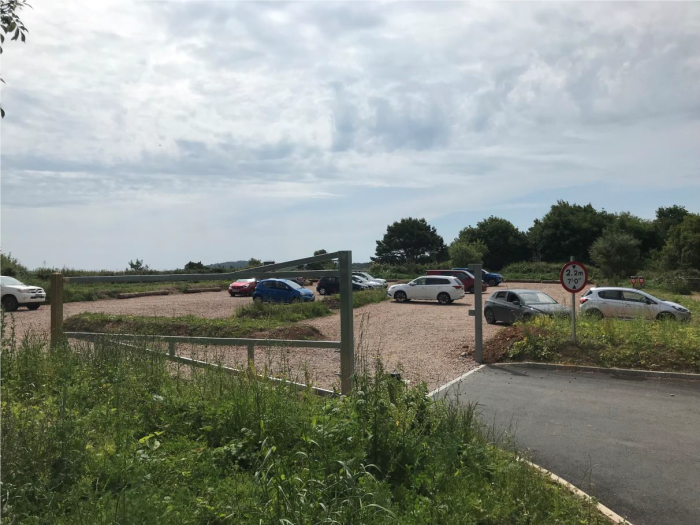
Phases 1 and 2 of the visitor access improvements on the East Devon Pebblebed Heaths have been completed, which means that Four Firs, Frying pans, Joneys Cross, The Warren, Estuary View and Woodbury Castle have all been upgraded. There are brand new signs at the entrance to help people find their way around and others inside the car parks with useful information for your explorations!
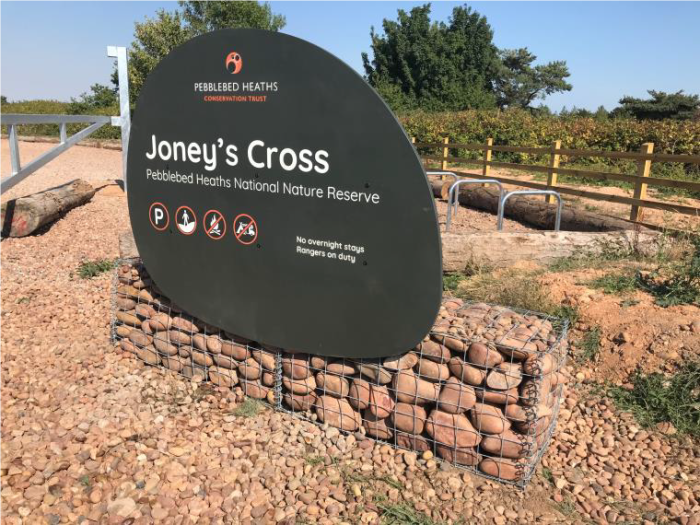
The signs in the car parks have a handy “you are here marker” on a map, along with background about that particular patch of the heaths and the unique wildlife found there. Re-surfacing has addressed the inevitable potholes and created better drainage to avoid water build up. The renovations also give better visibility to the road so that the access to the car parks is safer for visitors.
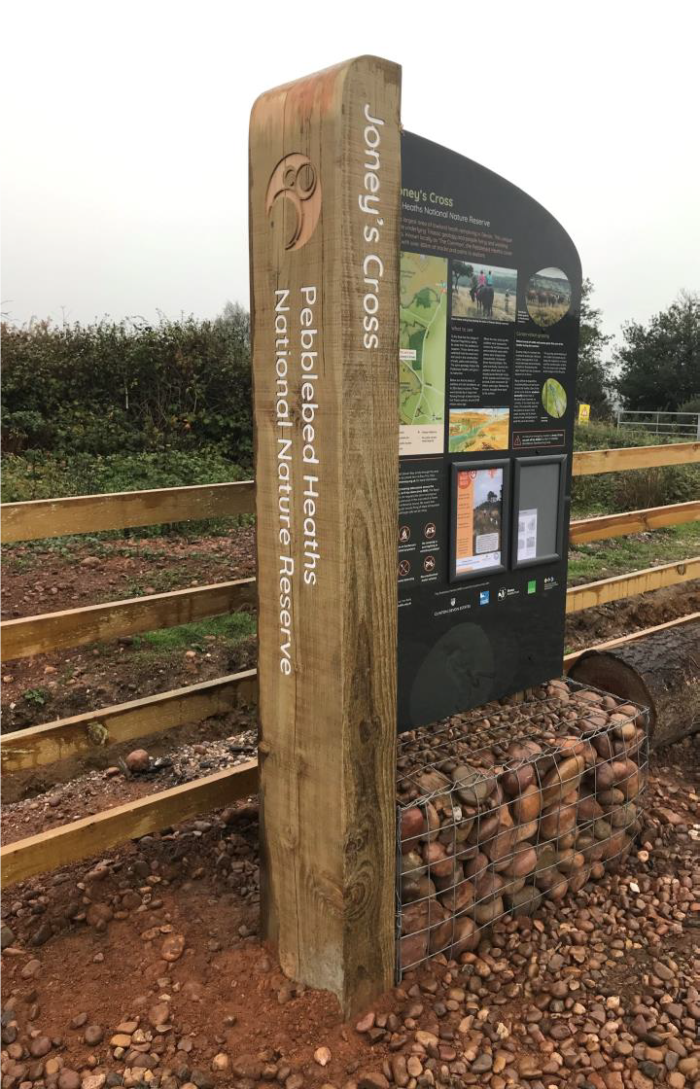
Height barriers have been installed over the entrances to discourage fly tipping, large unsuitable vehicles such as lorries, trucks and campervans from entering the car parks. Disabled parking spaces have been placed in Estuary view and Woodbury castle car parks and there is an all-ability access trail at Estuary view to the beautiful views over the Exe Estuary.
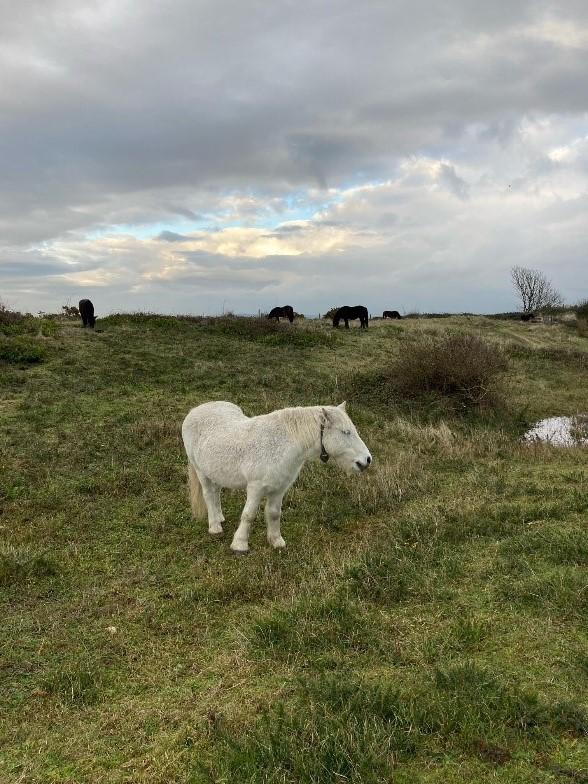
The ponies at Dawlish Warren will shortly be moving on to pastures new after finishing their labours! They’ll be moving back inland to their farm for the winter and due to them having eaten their fill at the Warren.
The ponies are brought onto Dawlish Warren to help with conservation grazing, which is the practice of using farm animals to graze the grassland and allow the habitat to thrive.
The control of grass growth using grazing gives rarer plants the time, light, nutrition and space to successfully grow. Each type of grazing animal (horses, sheep, cows, etc.) have different feeding patterns that benefit a particular habitat, because of the way that they eat.
It’s not just the feeding habits that affect the habitat, but how the animals trample and stamp certain areas. Exposed ground can provide suitable habitat for many different invertebrates and insects. Small organisms like this are extremely important in a healthy and diverse ecosystem.
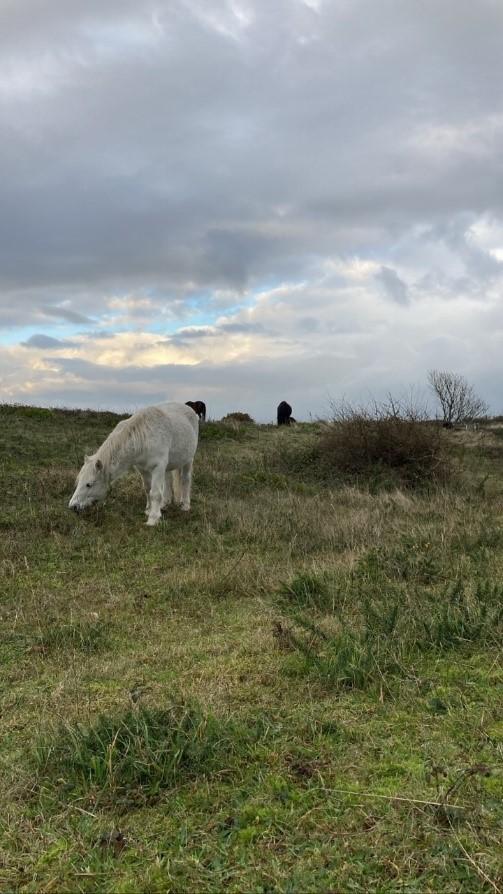
Devon Loves Dogs – free membership!

Devon Loves Dogs is a free membership scheme for dog owners and dog walkers. The aim of the scheme is to protect our treasured countryside and encourage responsible dog ownership so that we can continue to enjoy our special wildlife sites now and in the future.
A regular programme of guided “Waggy” walks are available to members, which offer great social interaction for our dogs, as well as us humans. The walks also provide unique insights into your favourite places to walk as you learn about the management, wildlife and stories of where you walk from site Rangers.
A Four Paws Code makes up part of a free membership pack of goodies, providing a wealth of information about where to walk and how to care for the places we all love walking in.
More than anything, Devon Loves Dogs is a community of responsible dog owners who love their dogs and love where they live. If you support the aims of Devon Loves Dogs and are happy to sign up to the Four Paws Code please become a member today.